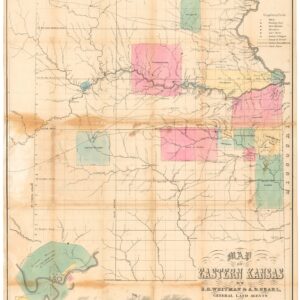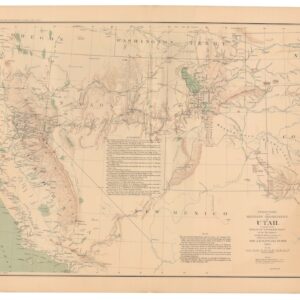Commemorative map of Taos with illustrations by noted artist Albert Lujan.
Things to see and do – Mapa Historico de Taos
Out of stock
Date:
1967
Place:
Taos
Dimensions:
57 x 44.5 cm (22.4 x 17.5 in)
Add to Wishlist
Add to Wishlist
Description
A celebration of the history and culture of Taos, New Mexico, with vignettes by illustrator Albert Lujan and information on important monuments and businesses.
Cartographer(s):
Albert Lujan
Albert Lujan (1892–1948), also known as Xenaiua meaning “Weasel Arrow,” was a genre and landscape painter from Taos Pueblo, New Mexico.
Kiwanis InternationalKiwanis International is an international service club founded in 1915 in Detroit, Michigan.
Condition Description
Folding map in good condition.
References



